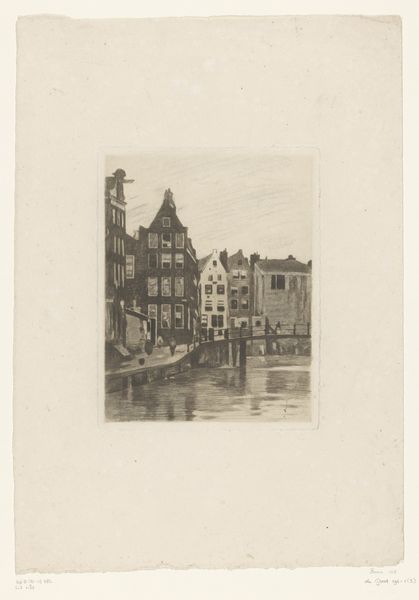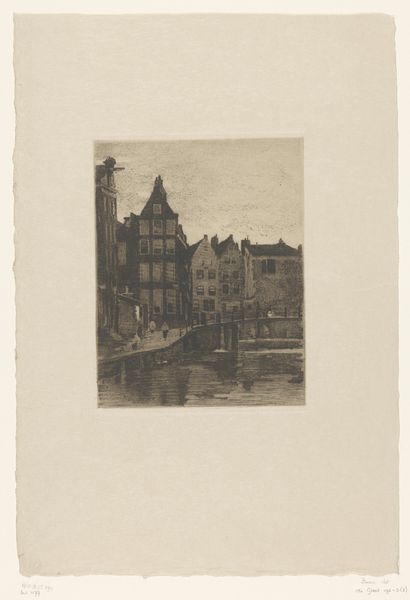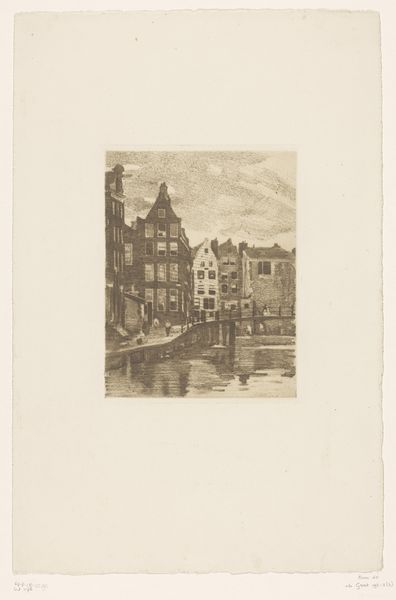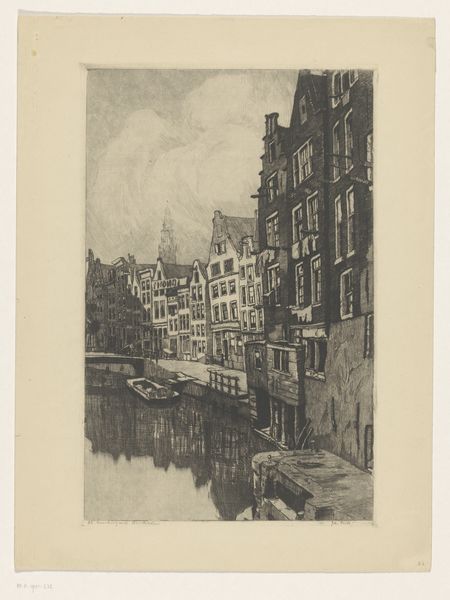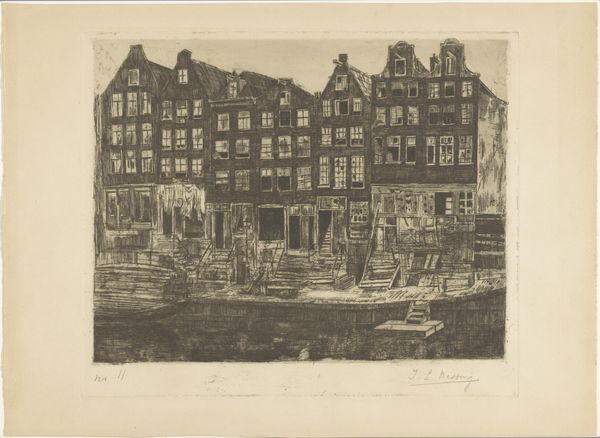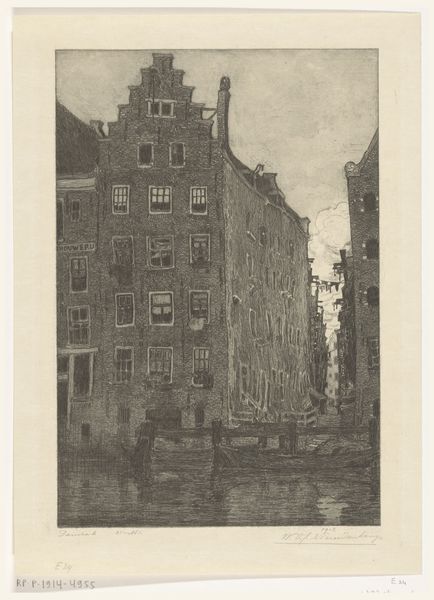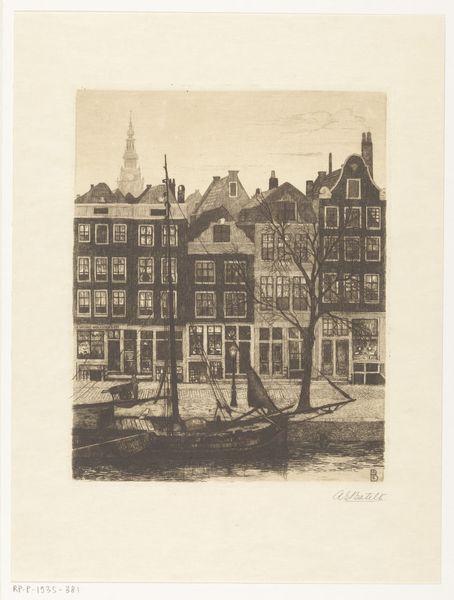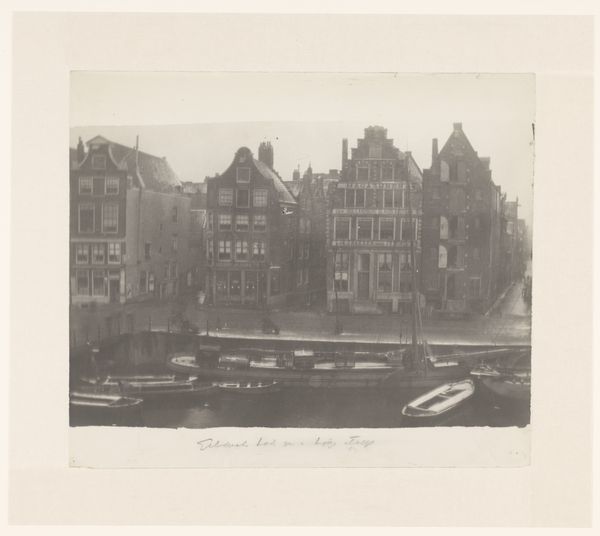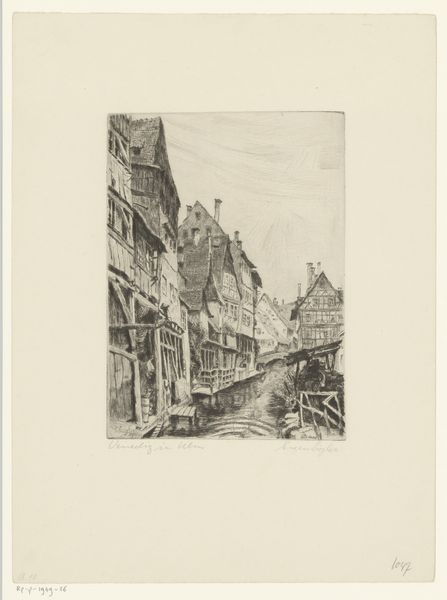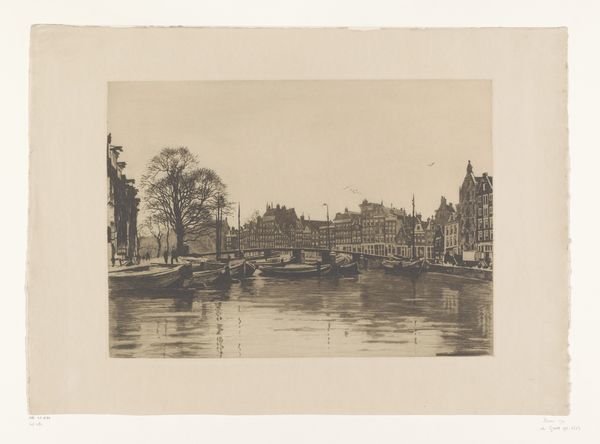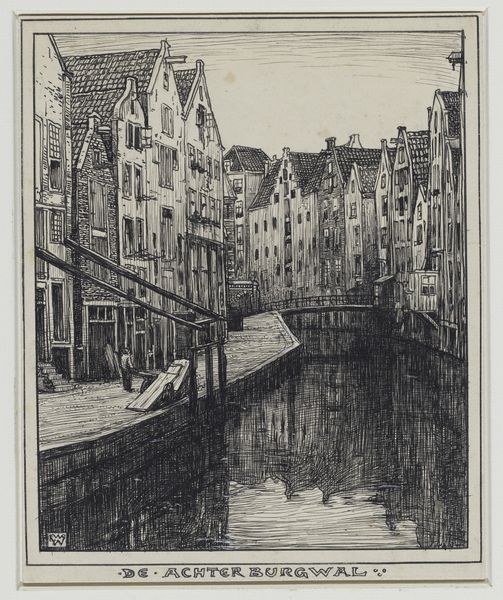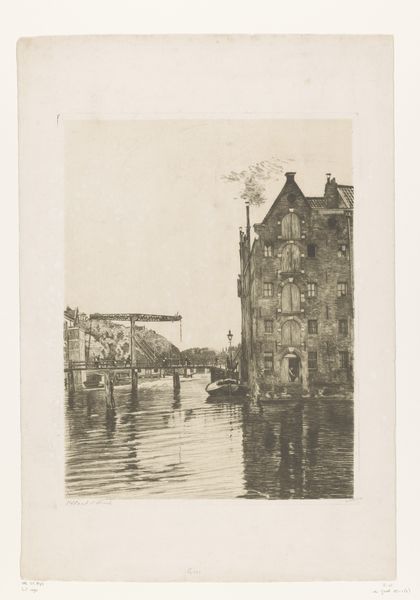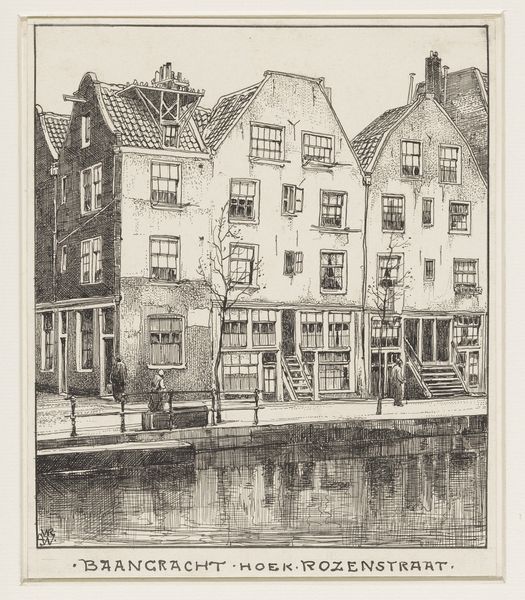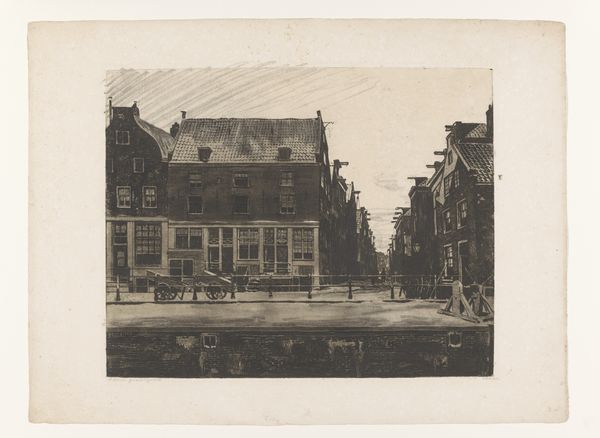
#
photo of handprinted image
#
aged paper
#
toned paper
#
light pencil work
#
animal
#
ink paper printed
#
personal sketchbook
#
ink colored
#
watercolour bleed
#
watercolour illustration
#
watercolor
Dimensions: height 279 mm, width 307 mm
Copyright: Rijks Museum: Open Domain
Editor: This is Willem Witsen's "Oudezijds Voorburgwal en de Oudezijds Kolk in Amsterdam," created around 1897. It's currently held at the Rijksmuseum. It's a beautiful, yet somber print. What stands out to me is the way the architecture seems to loom over the water, and how this tonality affects the symbolic significance of what it might represent? Curator: Yes, that sense of looming is critical. Water, historically and psychologically, represents the unconscious, the hidden. Witsen positions these very solid, almost imposing structures – look at all those windows, each a potential eye – as pressing down on that hidden realm. What do you think that implies about the collective psyche of Amsterdam at the time? Editor: Perhaps a suppression? Like the weight of societal expectations bearing down on individual expression? Curator: Precisely! And notice the almost complete lack of people in the image. This emptiness enhances the sense of isolation, perhaps reflecting anxieties about urbanization and industrialization at the close of the 19th century. Editor: That's fascinating. I hadn't considered the impact of urbanization on the symbolism here. Does the muted color palette also contribute? Curator: Absolutely. The monochromatic tones reinforce the dreamlike quality while contributing to a sense of melancholy and a focus on the buildings as almost monolithic testaments to commerce. Do you think the printing process adds another layer? Editor: The way it almost looks aged, as though these buildings were not meant to be this imposing but, instead, are simply the product of many passing seasons. I will look into that, thanks for guiding me! Curator: My pleasure. It is these quiet symbols that bring it to life, echoing throughout the ages. I learned so much today about perspective through historical references and psychology.
Comments
No comments
Be the first to comment and join the conversation on the ultimate creative platform.
